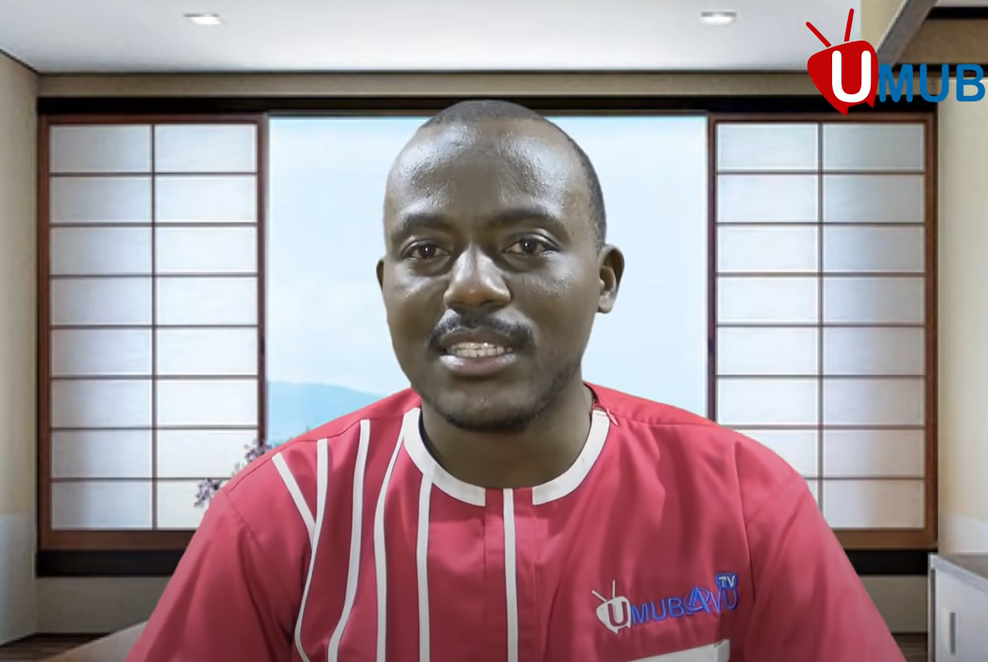Nairobi, November 3, 2021 — Rwandan authorities should immediately and unconditionally release journalist Théoneste Nsengimana and cease harassing members of the press, the Committee to Protect Journalists said today.
On October 13, security personnel arrested Nsengimana, who runs the YouTube channel Umubavu TV Online, according to tweets by the Rwanda Investigation Bureau (RIB), a law-enforcement body, and an interview with his wife, Chantal Umwari, published by the YouTube channel Ishema TV.
Authorities have charged Nsengimana with membership in a criminal group, dissemination of propaganda aimed at harming the Rwandan government abroad, spreading rumors, and inciting unrest, according to media reports, documents related to the case, which CPJ reviewed, and a person familiar with the case, who spoke on the condition of anonymity citing safety concerns.
The charges stem from a video published on Nsengimana’s YouTube channel the day before his arrest, which announced plans to air programming on October 14 as part of an event to commemorate the plight of political prisoners in Rwanda, according to those sources.
As of today, Nsengimana remains detained at the Remera Police Station in the capital, Kigali. He appeared in court on October 28 and November 2, and a bail decision is expected on November 5, according to news reports.
“By detaining journalist Théoneste Nsengimana, the Rwandan government is exposing its intolerance for commentary that critically covers issues of public interest and airs dissenting voices,” said CPJ’s sub-Saharan Africa representative, Muthoki Mumo. “Authorities should immediately release Nsengimana, drop all the charges filed against him, and cease harassing journalists for their work.”
Authorities say that the video and the October 14 event — which organizers called “Ingabire Day” — were part of a larger plot by members of the unregistered opposition party DALFA-Umurinzi to overthrow the government of Rwanda, according to the documents reviewed by CPJ. Authorities allege that DALFA-Umurinzi party members formulated that plot in September discussions about Blueprint for a Revolution, a book about nonviolent activism, according to those documents, which stated that Nsengimana did not attend those discussions.
Members of DALFA-Umurinzi and associates of that party’s leader, Victoire Ingabire, are among Nsegimana’s co-defendants, according to the RIB’s tweets, multiple media reports, a statement by the party, and Ingabire, who spoke to CPJ via messaging app. Ingabire told CPJ that Nsengimana planned to feature her in a political debate on his channel during the October 14 event.
Umubavu Online TV publishes reporting and commentary on Rwandan politics, including interviews with opposition figures; its videos have received about 16 million total views, according to CPJ’s review of the channel.
Prosecutors allege that the October 12 video posted on Umubavu Online TV spread falsehoods and aimed to incite the public by accusing the government of political killings and arbitrary detentions, according to those documents, which say that authorities also considered the planned October 14 programs to be part of a plot by DALFA-Umurinzi to overthrow the government.
If convicted of publishing rumors, Nsengimana could face up to five years in prison and a fine of up to 3 million Rwandan francs (US$3,000) under Rwanda’s 2018 cybercrimes law. Under Rwanda’s penal code, Nsengimana also faces up to 15 years in prison if convicted of inciting unrest, up to 10 years in prison if convicted of being a member of a criminal group, and up to 10 years if convicted of spreading propaganda to harm the international reputation of Rwanda’s government.
Previously, in April 2020, Nsengimana was arrested and detained for several weeks on allegations of fraud, part of a broader wave of arrests of journalists reporting critically during the COVID-19 pandemic, according to media reports.
CPJ emailed the Rwanda Investigation Bureau and the National Public Prosecution Authority for comment, but did not receive any reply. When CPJ called the Rwanda Investigation Bureau, a person answered the phone and said he would respond to CPJ’s emailed questions, but had not done so by the time of publication, and did not answer subsequent calls and a request sent via messaging app.
Faustin Nkusi, the spokesperson of Rwanda’s National Public Prosecution Authority, did not respond to phone calls or messages from CPJ seeking comment.
